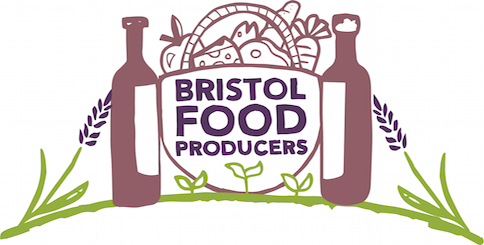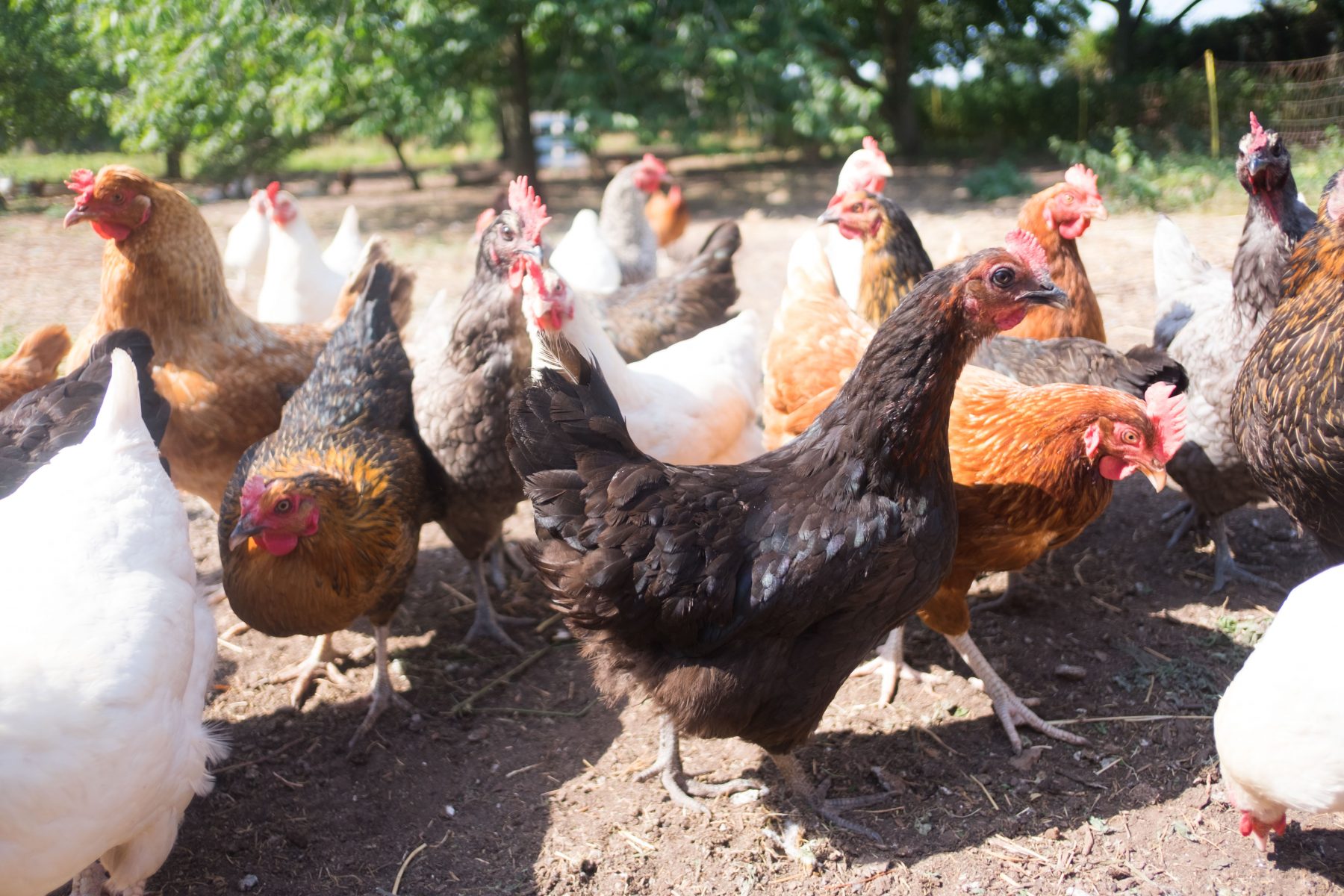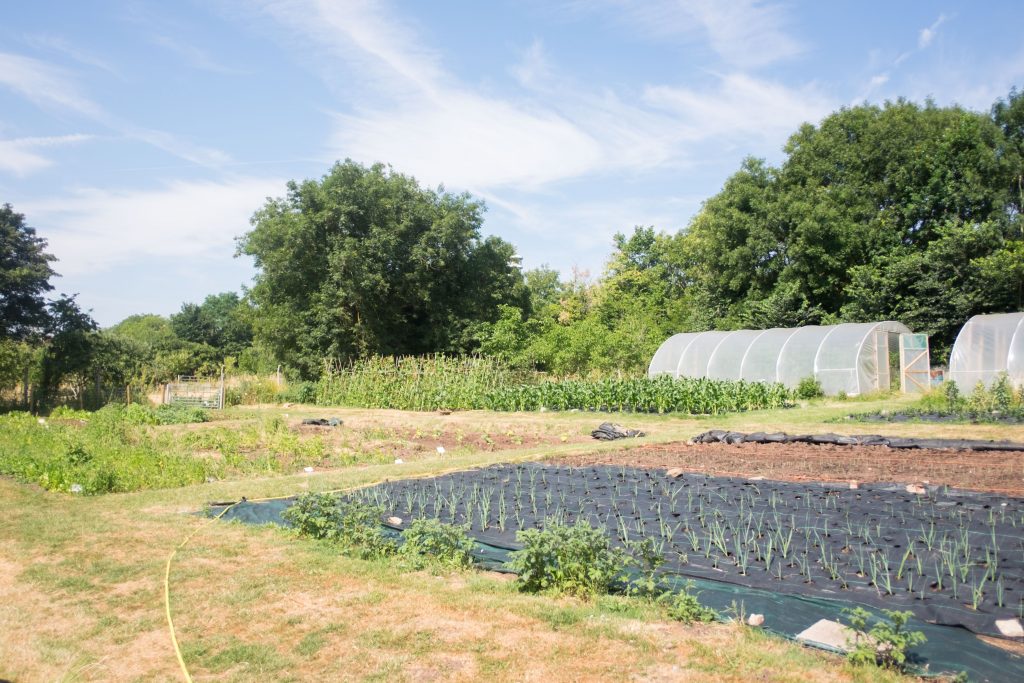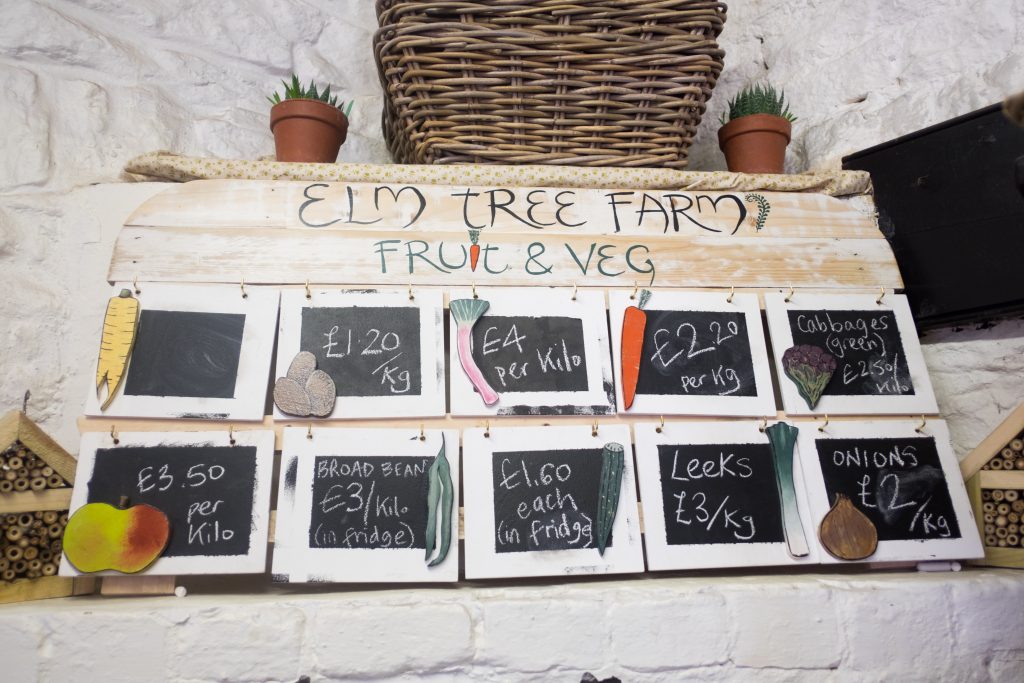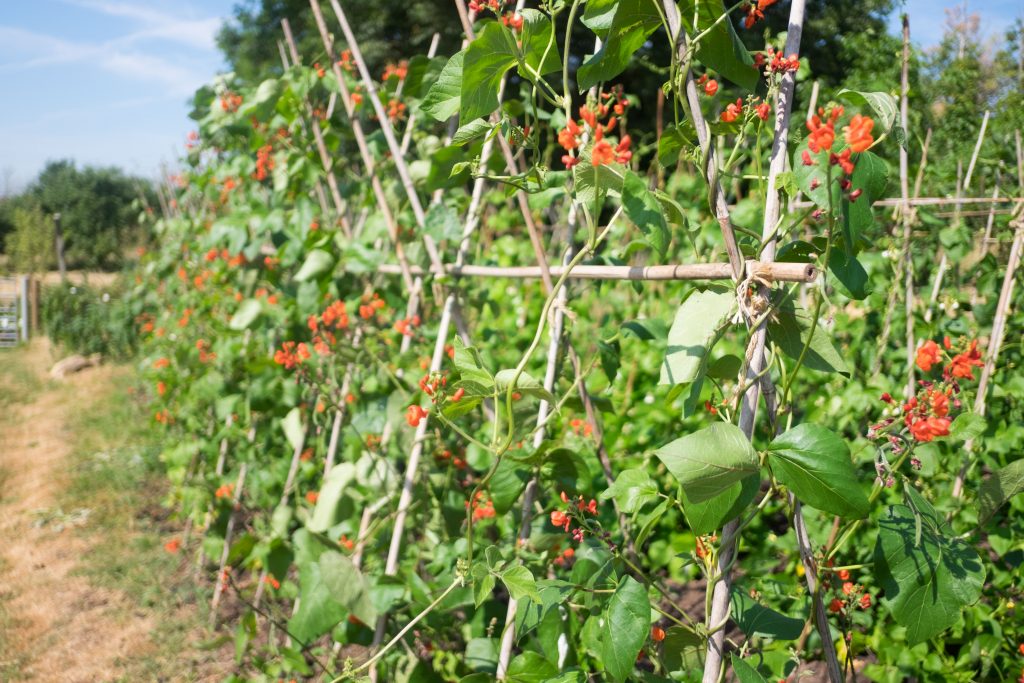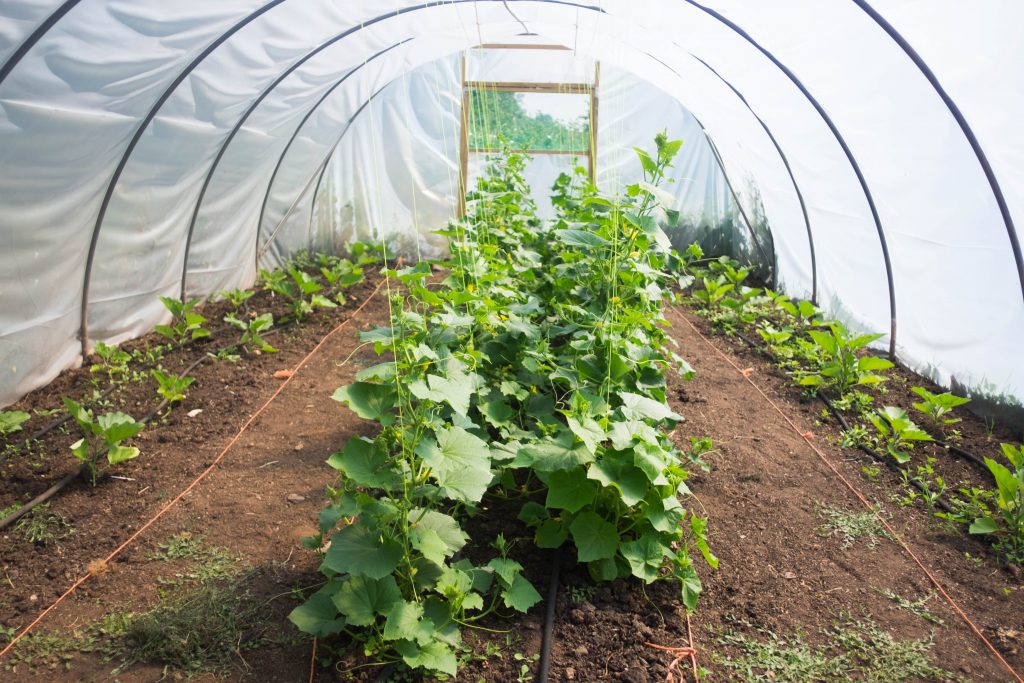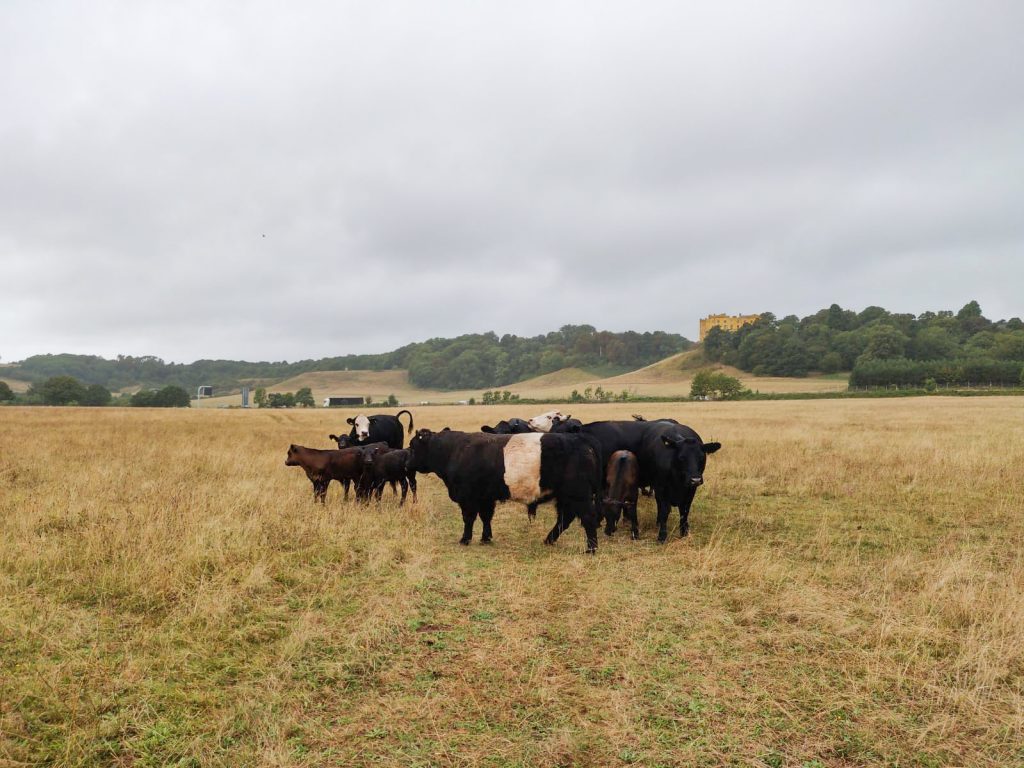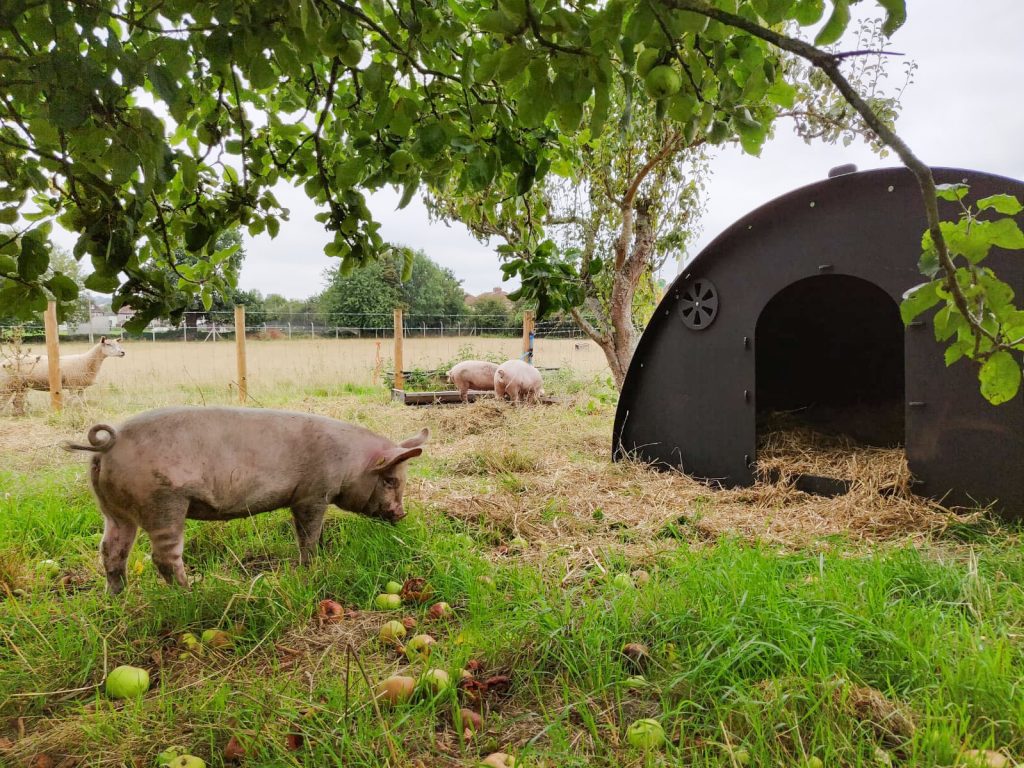You may have driven past their farm in Stapleton, or seen them at the Wednesday farmers market on Corn Street, but how much do you know about Elm Tree Farm?
The 47-acre farm has an interesting history. The Dower House in Stoke Park, the large yellow building you pass on the M32, was once part of Stoke Park Hospital. During this time, Elm Tree Farm was used as an occupational therapy resource – essentially a hospital farm. During the transition to community care in the 1990s, the Brandon Trust took on the care from the NHS and inherited the farm as part of this.
The farm offers adults with learning disabilities and autism to gain work skills and access vocational training; trainees can try out four different projects – animal husbandry, market garden, nursery or woodwork – before selecting which one (or ones) they want to continue working on. In total, more than 80 people with learning disabilities work on the farm over the course of a week.
Harley and Claire, part of the staff team, show me around the market garden. They have around four acres of growing land, including several polytunnels and an orchard. “We have a maximum of 12 trainees per project,” Claire explains, “But it’s normally an average of 5 or 6 in the market garden, with two members of staff.” The gardens are packed with produce – tomatoes ripening on the vine and the squash patch coming along nicely. “We have a farm shop here, and we also go to St Nicks farmers market every Wednesday,” she continues, stopping to show me some of the Polish tomato varieties they have, the seeds gifted from a support worker.
“It’s a unique project in that as well as having our trainees, we’re producing quite a lot of food!” Harley points out, as they walk me through the orchard, trees laden with apples, pears and plums at different levels of ripeness. The tour continues as we stop by the chickens, a wonderfully varied bunch who rush over at the sight of visitors, hoping we’re bringing food. James, who manages the livestock, tells me, “People know the quality of our eggs, so they sell well!” In addition to the chicken eggs, they also sell eggs from their ducks, which have a much richer and creamier flavour.
The next stop on the tour is to see some of the animals. James explains that they have 12 breeding cows and 14 ‘followers’ (young stock) that they use for conservation grazing on the land, some of whom will be bred next year and others might go for beef. They use native breeds as the behaviour of the animals suits the landscape and the quality of the meat is higher. They are currently hoping to get permission to graze a much larger piece of land that would offer an additional 100+ acres of grazing land and allow them to expand their herd.
I also get to see their flock of sheep – they don’t breed the sheep, instead taking around 20 orphan lambs and bottle feeding them. This works best with the set-up of the farm; “We’re looking for activities that we can get people involved in every day, and looking after orphan lambs works well for that,” James points out. The final stop is to see the pigs, and piglets scurry around the farmyard as we approach their enclosure. They have one breeding sow, and from each litter they keep 3-4 piglets and sell the other weeners at market. This means that for the lamb and pork they are only raising the animals they can sell the meat for through the farm shop.
James is excited for the potential changes ahead with the new land. “We’re always open to new ideas too, so feel free to approach us if you have any thoughts,” he points out. The meat is all slaughtered and butchered locally, then kept frozen and sold from the on-site farm shop.
I stop in on the shop, which is bursting with produce – freshly grown vegetables from the gardens, chutneys and preserves made from seasonal excesses, beautiful bird feeders, planters and kindling from the woodwork project, a range of nursery plants, freshly laid eggs, and a freezer packed full of cuts of their own pork, lamb and beef. The shop is open 9.00am to 3.30pm Monday to Friday and 9.00am to 12.00pm on a Saturday. In addition, you can catch them at the Wednesday Farmers and Producers market on Corn Street where they have a stall between 9.30am and 1.30pm.
Find out more: www.elmtreefarm.org
